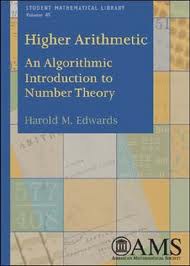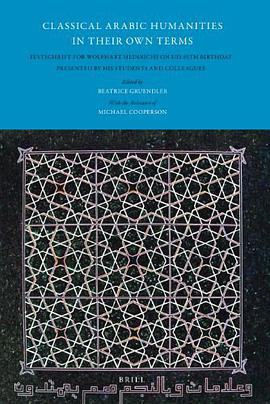
Higher Arithmetic pdf epub mobi txt 电子书 下载 2026
- 算法化
- 科普
- 数论
- Edwards
- 数学
- 数论
- 高等数学
- 算术
- 代数
- 数学史
- 经典数学
- 数学教材
- 理论数学
- 数学研究

具体描述
Although number theorists have sometimes shunned and even disparaged computation in the past, today's applications of number theory to cryptography and computer security demand vast arithmetical computations. These demands have shifted the focus of studies in number theory and have changed attitudes toward computation itself.
The important new applications have attracted a great many students to number theory, but the best reason for studying the subject remains what it was when Gauss published his classic Disquisitiones Arithmeticae in 1801: Number theory is the equal of Euclidean geometry—some would say it is superior to Euclidean geometry—as a model of pure, logical, deductive thinking. An arithmetical computation, after all, is the purest form of deductive argument.
Higher Arithmetic explains number theory in a way that gives deductive reasoning, including algorithms and computations, the central role. Hands-on experience with the application of algorithms to computational examples enables students to master the fundamental ideas of basic number theory. This is a worthwhile goal for any student of mathematics and an essential one for students interested in the modern applications of number theory.
作者简介
Harold M. Edwards is Emeritus Professor of Mathematics at New York University. His previous books are Advanced Calculus (1969, 1980, 1993), Riemann's Zeta Function (1974, 2001), Fermat's Last Theorem (1977), Galois Theory (1984), Divisor Theory (1990), Linear Algebra (1995), and Essays in Constructive Mathematics (2005). For his masterly mathematical exposition he was awarded a Steele Prize as well as a Whiteman Prize by the American Mathematical Society.
目录信息
Title 4
Copyright 5
Contents 6
Preface 10
Chapter 1. Numbers 14
Chapter 2. The Problem [omitted] 20
Chapter 3. Congruences 24
Chapter 4. Double Congruences and the Euclidean Algorithm 30
Chapter 5. The Augmented Euclidean Algorithm 36
Chapter 6. Simultaneous Congruences 42
Chapter 7. The Fundamental Theorem of Arithmetic 46
Chapter 8. Exponentiation and Orders 50
Chapter 9. Euler's Ø-Function 56
Chapter 10. Finding the Order of a mod c 58
Chapter 11. Primality Testing 64
Chapter 12. The RSA Cipher System 70
Chapter 13. Primitive Roots mod p 74
Chapter 14. Polynomials 80
Chapter 15. Tables of Indices mod p 84
Chapter 16. Brahmagupta's Formula and Hypernumbers 90
Chapter 17. Modules of Hypernumbers 94
Chapter 18. A Canonical Form for Modules of Hypernumbers 100
Chapter 19. Solution of [omitted] 106
Chapter 20. Proof of the Theorem of Chapter 19 112
Chapter 21. Euler's Remarkable Discovery 126
Chapter 22. Stable Modules 132
Chapter 23. Equivalence of Modules 136
Chapter 24. Signatures of Equivalence Classes 142
Chapter 25. The Main Theorem 148
Chapter 26. Modules That Become Principal When Squared 150
Chapter 27. The Possible Signatures for Certain Values of A 156
Chapter 28. The Law of Quadratic Reciprocity 162
Chapter 29. Proof of the Main Theorem 166
Chapter 30. The Theory of Binary Quadratic Forms 168
Chapter 31. Composition of Binary Quadratic Forms 176
Appendix. Cycles of Stable Modules 182
Answers to Exercises 192
Bibliography 220
Index 222
A 222
B 222
C 222
D 222
E 222
F 222
G 223
H 223
I 223
J 223
K 223
L 223
M 223
N 223
O 223
P 223
Q 223
R 223
S 223
T 223
Back Cover 226
· · · · · · (收起)
读后感
评分
评分
评分
评分
用户评价
相关图书
本站所有内容均为互联网搜索引擎提供的公开搜索信息,本站不存储任何数据与内容,任何内容与数据均与本站无关,如有需要请联系相关搜索引擎包括但不限于百度,google,bing,sogou 等
© 2026 book.wenda123.org All Rights Reserved. 图书目录大全 版权所有




















